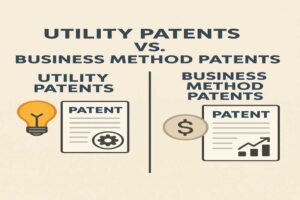股权稀释, also known as Stock Dilution 或者 Share Dilution, is the decrease in percentage of existing shareholders’ ownership of a company as a result of the company issuing new equity.
Equity dilution affects dividend, earnings voting rights and share of liquidation if any but not the value of the shareholders’ stake.
This dilution can shift fundamental positions of the stock such as ownership percentage, voting control, earnings per share, and the value of individual shares.
New equity increases the total shares outstanding which has a dilutive effect on the ownership percentage of existing shareholders.
This increase in the number of shares outstanding can result from:
- a primary market offering including
- an initial public offering,
- employees exercising stock options,
- investors converting convertible bonds, preferred shares or warrants into stock.
Value dilution describes the reduction in the current price of a stock due to the increase in the number of shares. This generally occurs when shares are issued in exchange for the purchase of a business, and incremental income from the new business must be at least the Return On Equity (ROE) of the old business. When the purchase price includes goodwill, this becomes a higher hurdle to clear.
The theoretical diluted price, i.e. the price after an increase in the number of shares, can be calculated as:
![]()
- O = original number of shares
- OP = Current share price
- N = number of new shares to be issued
- IP = issue price of new shares
For example, if there is a 3-for-10 issue, the current price is $0.50, the issue price $0.32, we have
- O = 10, OP = $0.50, N = 3, IP = $0.32, and
- TDP = ((10×0.50)+(3×0.32))/(10+3) = $0.4585
Owners' share of the underlying business
If the new shares are issued for proceeds at least equal to the preexisting price of a share, then there is no negative dilution in the amount recoverable. The old owners just own a smaller piece of a bigger company. However, voting rights at stockholder meetings are decreased.
But, if new shares are issued for proceeds below or equal to the pre-existing price of a share, then stock holders have the opportunity to maintain their current voting power without losing net worth.
Market value of the business
Frequently the market value for shares will be higher than the book value. Investors will not receive full value unless the proceeds equal the market value. When this shortfall is triggered by the exercise of employee stock options, it is a measure of wage expense.
When new shares are issued at full value, the excess of the market value over the book value is a kind of internalized capital gain for the investor. He is in the same position as if he sold the same % interest in the secondary market.
Assuming that markets are efficient, the market price of a stock will reflect these evaluations, but with the increase in shareholder equity ‘management’ and prevalence of barter transactions involving equity, this assumption may be stretched.
Preferred share conversions are usually done on a dollar-for-dollar basis. $1,000 face value of preferred will be exchanged for $1,000 worth of common shares (at market value). As the common shares increase in value, the preferred will dilute them less (in terms of percent-ownership), and vice versa. In terms of value dilution, there will be none from the point of view of the shareholder. Since most shareholders are invested in the belief the stock price will increase, this is not a problem.
When the stock price declines because of some bad news, the company’s next report will have to measure, not only the financial results of the bad news, but also the increase in the dilution percentage. This exacerbates the problem and increases the downward pressure on the stock, increasing dilution. Some financing vehicles are structured to augment this process by redefining the conversion factor as the stock price declines, thus leading to a “death spiral”.
Dilution resulting from Options and Warrants
Options and warrants are converted at pre-defined rates. As the stock price increases, their value increases dollar-for-dollar. If the stock is valued at a stable price-to-earnings ratio (P/E) it can be predicted that the options’ rate of increase in value will be 20 times (when P/E=20) the rate of increase in earnings. The calculation of “what percentage share of future earnings increases goes to the holders of options instead of shareholders?” is
(in-the-money options outstanding as % total) * (P/E ratio) = % future earnings accrue to option holders
For example, if the options outstanding equals 5% of the issued shares and the P/E=20, then 95% (= 5/105*20) of any increase in earnings goes, not to the shareholders, but to the options holders.
Share dilution scams
A share dilution scam happens when a company, typically traded in unregulated markets such as the OTC Bulletin Board and the Pink Sheets, repeatedly issues a massive amount of shares into the market (using follow-on offerings) for no particular reason, considerably devaluing share prices until they become almost worthless, causing huge losses to shareholders.
Then, after share prices are at or near the minimum price a stock can trade and the share float has increased to an unsustainable level, those fraudulent companies tend to reverse split and continue repeating the same scheme.







